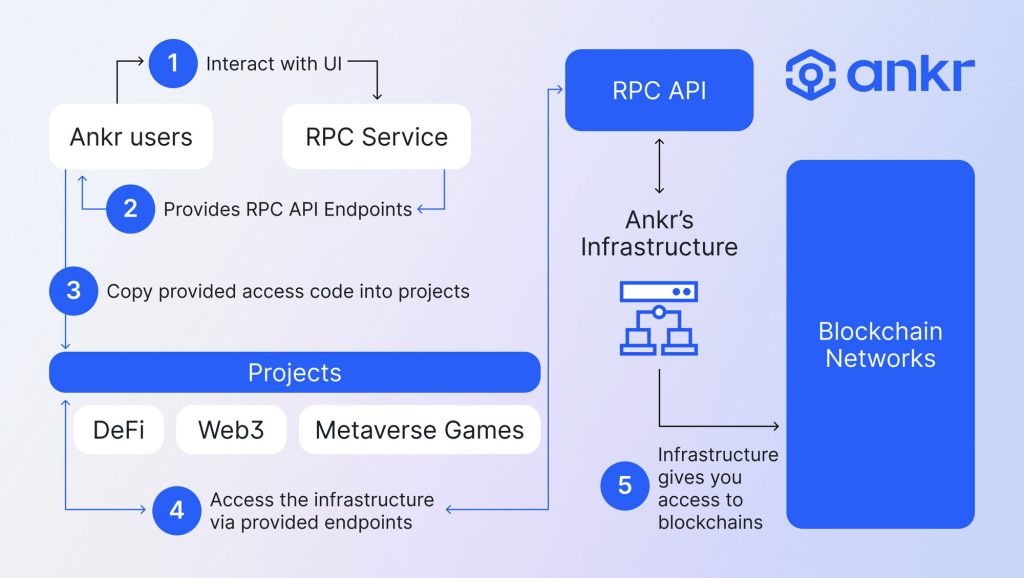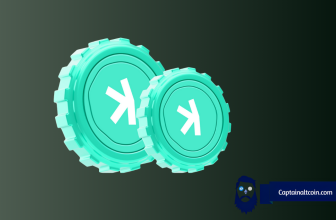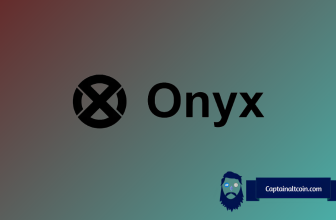
The buzz around Aptos is picking up and the new partnership they launched with Ankr is adding to it.
Ankr, which is already providing its RPC services to all major blockchains like Ethereum, BNB, Solana and others, has become one of the first RPC (Remote Procedure Call) providers to Aptos and developers can now access Aptos Testnet Community and Premium RPCs, make request calls, and receive information returns that mirror the results they would get by running an Aptos full node by themselves.
The partnership will make it possible for developers to build dApps on top of the Aptos blockchain that are safe, scalable, and can be updated.
Aptos Testnet RPC (Remote Procedure Call) from Ankr links wallets, command-line interfaces, and decentralized applications (dApps) to the Aptos blockchain. It acts as a messenger or blockchain router that sends on-chain information between Aptos nodes, dApps, and finally end users so that they can do things like make transactions, update wallet balances, find out who owns something, and more.
Ankr is offering a geo-distributed and decentralized Aptos RPC that is made up of many independent blockchain nodes running all over the world for low-latency and reliable connections. This is meant to strengthen the global Aptos network.
Developers can make their first call to Aptos using Ankr’s RPC Service now. They can use the endpoint https://rpc.ankr.com/http/aptos_testnet/v1 to call the Aptos chain using the standard EVM JSON RPC methods.
RPCs can be thought of as relays that allow developers to make calls and run instructions from one computer on a network to another without the need for any extra steps. With the Ankr Public RPC, developers can send requests to the blockchain by calling a group of nodes. They can also add the endpoint to their MetaMask with a single click.
Once the Aptos mainnet is up and running, Ankr will add support for it with more documentation, features, and tools to help Web3 developers build faster.
What is Aptos?
Aptos was founded by Mo Shaikh (CEO) and Avery Ching (CTO). The two first worked together at Meta (formerly Facebook), specifically on the Diem blockchain and Novi wallet projects.
The Move programming language is the most important part of Diem that was brought to Aptos. This language was first made at Meta to make Diem more secure and able to grow. This is now happening for Aptos.
The best way to understand Move’s benefits is to look at how it uses its resources. Simply put, resources are a safe way for a system to store important information. Resources have a high status in the code architecture, which makes it impossible to accidentally copy or delete them.
Move stores important data as resources, like tokens and smart contracts. This makes the language much safer than other blockchain programming languages. Move is used to implement all of the important parts of Aptos, such as accounts, transaction fees, a standard library, validator node management, and configuration.
Aptos is a much-anticipated network that aims to improve Web3 with new tech improvements like their parallel execution engine, Block-STM. Developers working on the Aptos testnet have seen more than 160,000 transactions per second (TPS).
Parallel processing makes higher TPS attainable without 1) relying on high-performance computing 2) mathematically driven solutions like zero-knowledge proofs Sequential processing means that a blockchain is processing one transaction after the other in a logical order.
Aptos has received funding and partnerships from VCs and some of the biggest crypto firms. It is backed by a16z, FTX Ventures, Paypal Ventures, Coinbase Ventures, Binance Labs and other leading investors. Aptos has now raised $350M so far this year. For comparison, Solana raised (only) $25M before launch.
Aptos Tokenomics are not public yet.
What is Ankr?
With a plug-and-play public RPC and the ability to use premium features by putting down ANKR tokens, the Ankr Protocol makes it very easy and quick to build new DApps. All of this means that building and releasing products for Web 3.0 will be faster and easier.
Ankr RPC acts as a messenger or blockchain router that relays on-chain information between Aptos nodes, dApps, and end-users.

Ankr is building the future of decentralized Web3 infrastructure. It serves more than 50 proof-of-stake chains with a global node delivery system and RPC aggregator that are the best in the business. As of 2022, Ankr will be the leading infrastructure provider for BSC, Fantom, and Polygon chains. It already handles more than 2 trillion transactions a year across the Web3. Ankr also gives developers a set of tools, like the Liquid Staking SDK, Web3 Gaming SDK, and AppChains As a Service, that make it easy and quick to build Web3 apps.
The Ankr Network handles an average of 8 billion blockchain requests from more than 50 different networks every day. It gives Aptos high-performance RPC node infrastructure that has been used for a long time and can handle any request load. This greatly increases Aptos’ public RPC resources.







